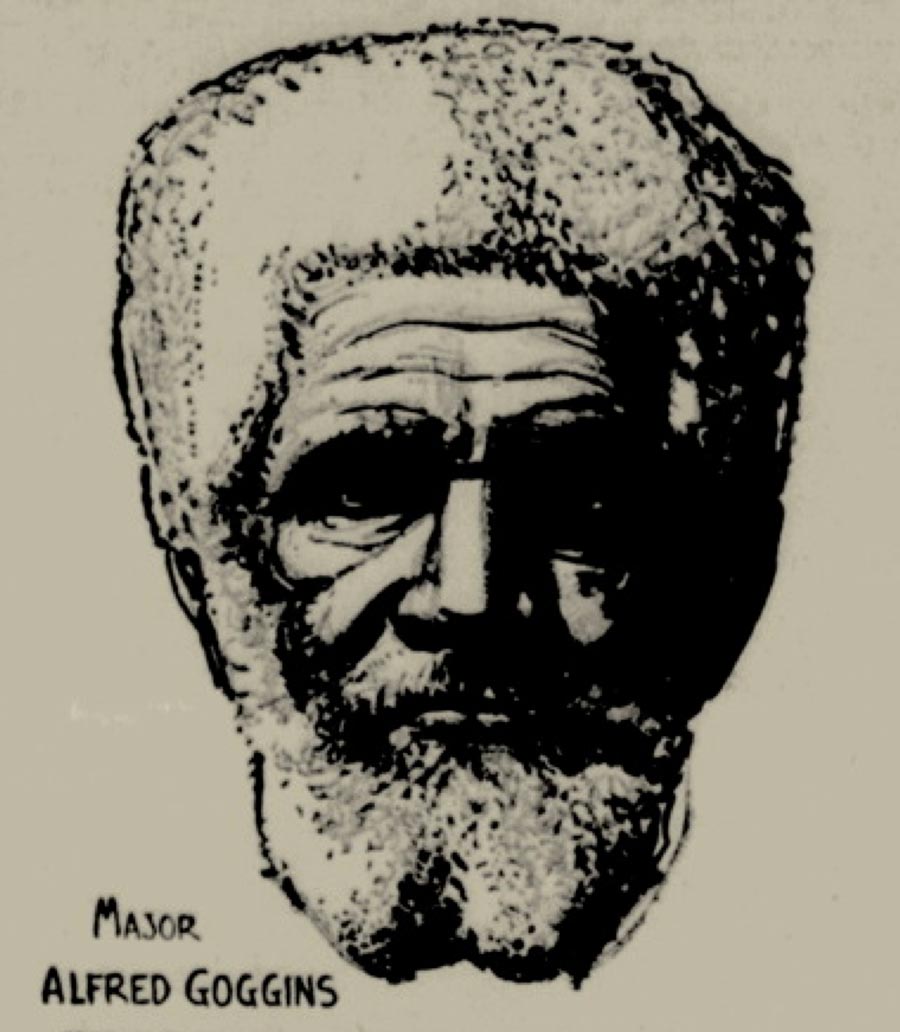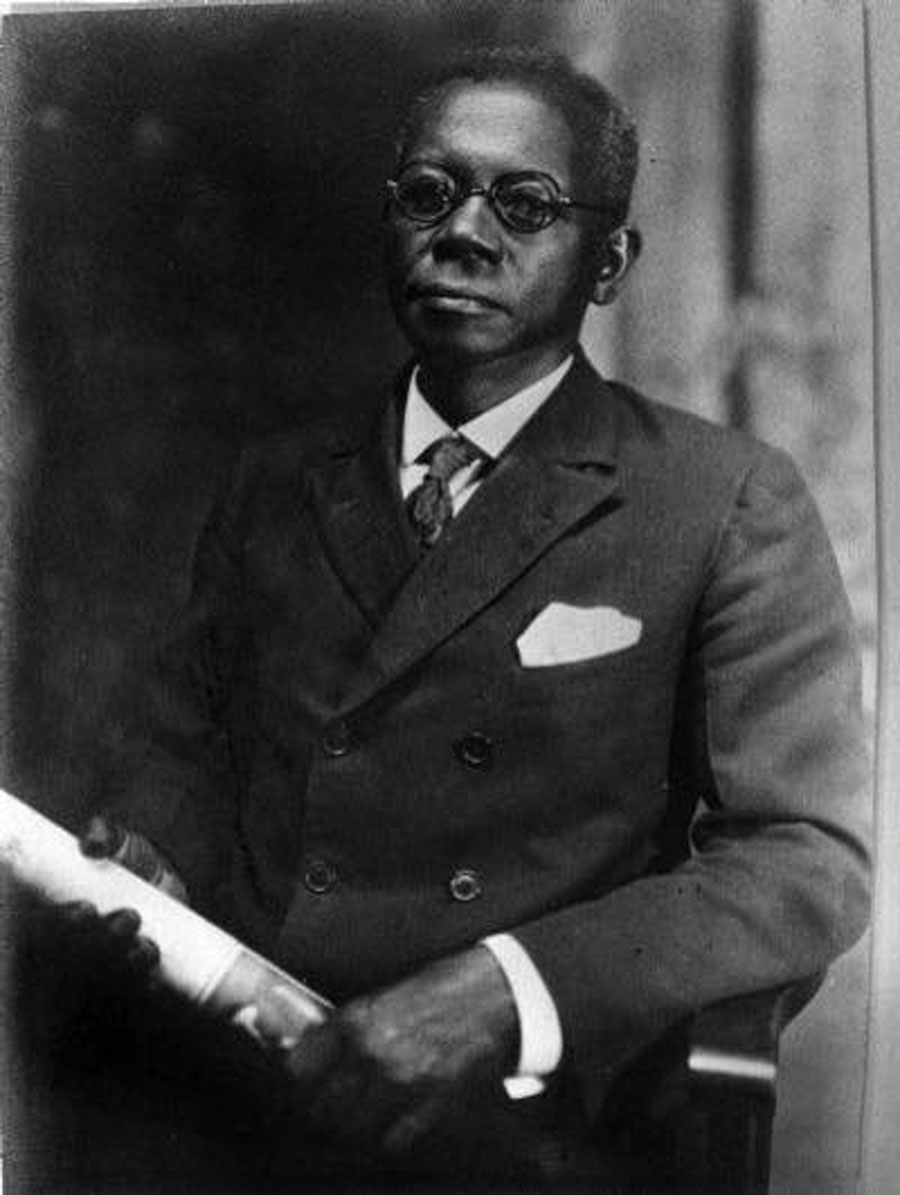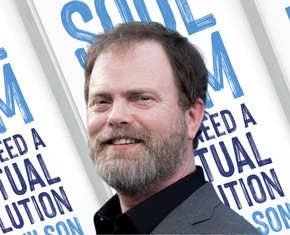The views expressed in our content reflect individual perspectives and do not represent the authoritative views of the Baha'i Faith.
As an African-American born into slavery, A.C. “Bud” Goggins worked the fields on a Southern plantation as a child, without any chance for an education.
Here is how Major Goggins—one of the first Baha’is in Miami, Florida in the 1920s—educated himself:
He learned to read at the age of 26 when he came in possession of a Webster’s Speller. He was so eager to learn that he spelled all the words in the speller three times in three months. At Atlanta, he met Alexander Stephens who asked him, “What are you doing here, Bud?” His reply was, “I want an education. I came to Atlanta to see if I can get into a school.” “That’s right, Bud, I’m glad you want an education,” encouraged the Confederate who presented him to Bob Toombs and Gen. Longstreet who advanced the money for his education! Graduating with an A.B. degree and winning a scholarship at Amherst College where he spent two years, he was the only Negro alumnus of that institution. – Cora Mae Taylor: “Who’s Who in Colored Town, Miami, Fla.: Major A. C. Goggins” (1936), p. 2.
From self-taught reader to college student is a remarkable achievement. Whether or not Goggins actually graduated from Atlanta University has not yet been independently verified. What is certain is that, in 1887, Goggins was listed as an “advanced student”—a remarkable triumph for an ex-slave.
Joining the army in 1878, he served for ten years as Sergeant of Troop D, known as the “Black Horse” troop. For two years during that period he was detailed to serve as Military Aide to the First Lady of the Land, Miss Rose Elizabeth Cleveland, sister of the Bachelor President Grover Cleveland.
When President Cleveland married and Rose left the White House, Goggins was returned to his troop and promoted to the rank of Sergeant Major, which position he held until his honorable discharge in 1913.
So this background—these sketchy but salient facts—tell us about his career successes, but little about his character. For that, let’s turn to Major Goggin’s own written philosophy of life, in which he outlines his personal code of ethics.
A brief, but poignant essay that Major Goggins wrote, “A Real Man,” appears on the final page of the 1936 interview mentioned above. This essay, quoted in full below, gives us a real insight into this notable man’s depth of character:
A REAL MAN
A real man never talks about what the world owes him, the happiness he deserves, the chance he ought to have, and all that.
A real man is just as honest alone, in the dark, in his room, as he is in public.
A real man does not want public tips and favors; he wants work and honest wages.
A real man is loyal to his friends, guards their respect as his own.
A real man is dependable, — his simple word is as good as his Bible oath.
A real man does not want something for nothing, so the “Get-rich-quick” people can’t use him.
A real man honors a woman, — any woman. He can not hurt a woman physically or morally. He sticks to his wife.
A real man always has excuses for others, never for himself. He is patient and charitable towards others; toward himself he is strict.
A real man is glad to live and not afraid to die.
A real man never hunts danger and dodges it when he meets it.
A real man is — well, he is an honest man, the finest, the best, the noblest, the most refreshing thing to find on all the green earth — except a real woman.
Such noble sentiments did not go unnoticed. Major Goggins’ essay “was so greatly admired by a local pastor that he ordered 200 copies at $1.00 each for distribution.” According to Cora Mae Taylor, “Dr. King of the Miami Beach church presented each of those members with a copy of this essay.”
What more can be said of the character and quality of Major Goggins as a worthy individual? Here’s another example: On Tuesday, May 21, 1935, The Miami News published this news story on Page 6, which names “Major Goggins” immediately after his Baha’i friend “D. A. Dorsey:”
NEGROES PROTEST HAWTHORNE OUSTER
Governor Sholtz to Get 1,000-Name Petition
A committee of negro business and professional men, headed by B. Solomon, has organized to petition Governor Sholtz to reinstate N. Vernon Hawthorne as state attorney.
The group, which also includes D. A. Dorsey, Major Goggins, L. W. Curlin, secretary, and the Rev. J. W. Drake, is planning to gather 1,000 names and has already realized one-third that amount.
The petition follows:
“We, the colored citizens of Miami, who appreciate sincerity, honesty and true manhood, wish to use this means of expressing our regret at the action taken by our state senate and our governor in regard to former State Attorney Hawthorne, and would appreciate his reinstatement, or his being given a chance to defend himself.
“We are sorely in need of men of Mr. Hawthorne’s type, fearless in the execution of justice and dealing with ail classes alike.”
So here we see a man of conscience and character, willing to help others and speak up for justice. Will any records of Major Goggins’s experience as a Baha’i be discovered? Time will tell. But the foregoing anecdotes and quotes offer ample evidence that Major Goggins had the predisposition to recognize and embrace the Baha’i message of interracial harmony:
Strive earnestly … and put forth your greatest endeavor toward the accomplishment of this fellowship and the cementing of this bond of brotherhood between you. Such an attainment is not possible without will and effort on the part of each; from one, expressions of gratitude and appreciation; from the other, kindliness and recognition of equality. Each one should endeavor to develop and assist the other toward mutual advancement. … Love and unity will be fostered between you, thereby bringing about the oneness of mankind. For the accomplishment of unity between the colored and white will be an assurance of the world’s peace. – Abdu’l-Baha, quoted by Shoghi Effendi in The Advent of Divine Justice, p. 39.


















Comments
Sign in or create an account
Continue with Googleor